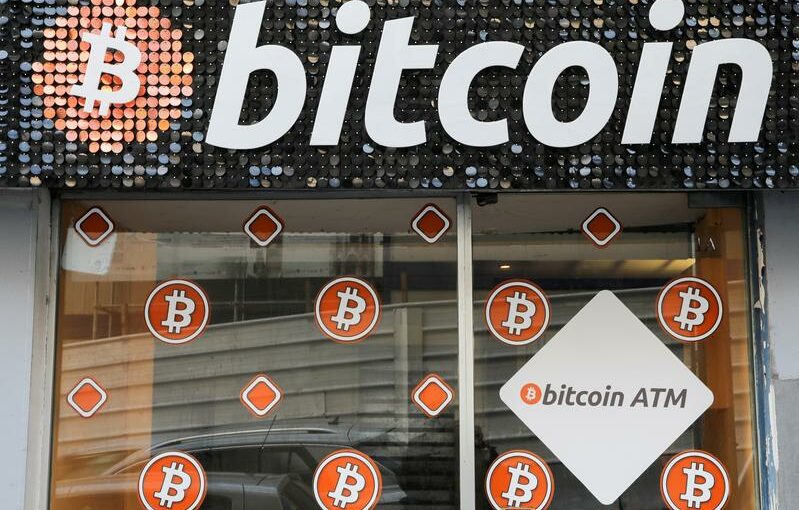NEW YORK/LONDON (Reuters) – Bitcoin rose nearly 7% on Monday as risk assets rallied after last week’s bond rout cooled, with Citi saying the most popular cryptocurrency was at a “tipping point” and could become the preferred currency for international trade.
With the recent embrace of the likes of Tesla Inc and Mastercard Inc, bitcoin could be at the start of a “massive transformation” into the mainstream, the investment bank said.
Goldman Sachs, meanwhile, has restarted its cryptocurrency trading desk and will begin dealing bitcoin futures and non-deliverable forwards for clients next week, a person familiar with the matter told Reuters.
“Those drawing parallels to the bursting of the crypto bubble in 2017 may not be accounting for the technology’s advancement since then,” said Paolo Ardoino, chief technology officer at cryptocurrency exchange Bitfinex.
Bitcoin, which hit a record high of $58,354 in February, could in the future become the preferred currency for international trade or face a “speculative implosion”, Citi said.
“There are a host of risks and obstacles that stand in the way of bitcoin progress,” Citi’s analysts wrote. “But weighing these potential hurdles against the opportunities leads to the conclusion that bitcoin is at a tipping point.”
The world’s largest cryptocurrency was up 6.8% at $48,330 in early afternoon trading. Smaller rival ether rallied 6.8% to $1,517.
Bitcoin’s recent performance has come with the growing involvement of institutional investors in recent years, contrasting with its heavy retail investor focus for most of the past decade, Citi said.
If businesses and individuals gain access via digital wallets to planned central bank digital cash and so-called stablecoins, bitcoin’s global reach, traceability and potential for quick payments would see it “optimally positioned” to become the preferred currency for international trade, Citi added.
Bitcoin, designed as a payment tool, is little used for commerce in major economies, hampered by high volatility and relatively costly transactions. Yet it has gained traction over in some emerging markets, such as Nigeria, over the past year.
Such a dramatic transformation to the de facto currency of world trade – a status currently held by the dollar – would depend on changes to bitcoin’s market to allow wider institutional participation and closer oversight by financial regulators, Citi said.
Still, shifts in the macroeconomic environment could also make the demand for bitcoin less pressing, it added.
The recent surge in interest, sparked by a narrative that bitcoin can act as a hedge against inflation, has driven it to a record high and a $1 trillion market capitalization.
But it has pulled back more than $11,000 from those levels in the past week on questions over the sustainability of such high prices.
New York Attorney General Letitia James on Monday warned investors to take “extreme caution when investing in virtual currencies”.
Graphic: Bitcoin’s surge from March lows –
Source: Read Full Article
